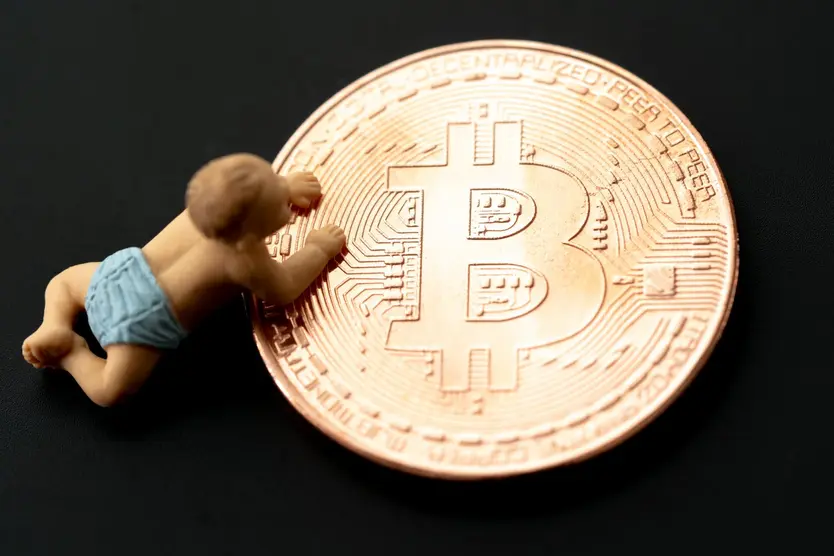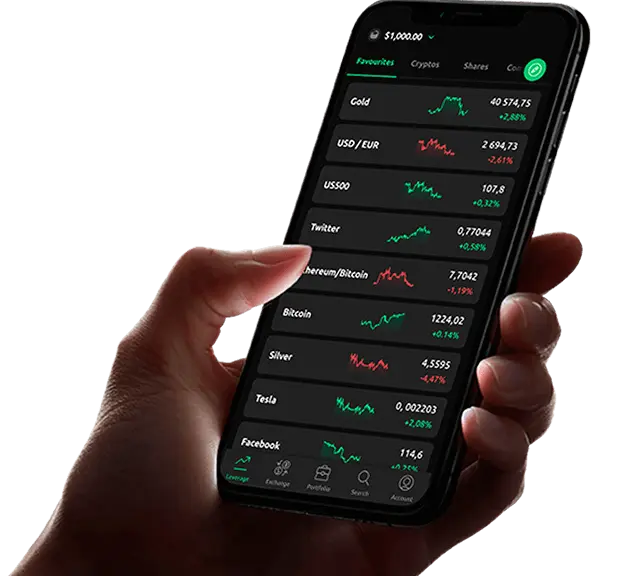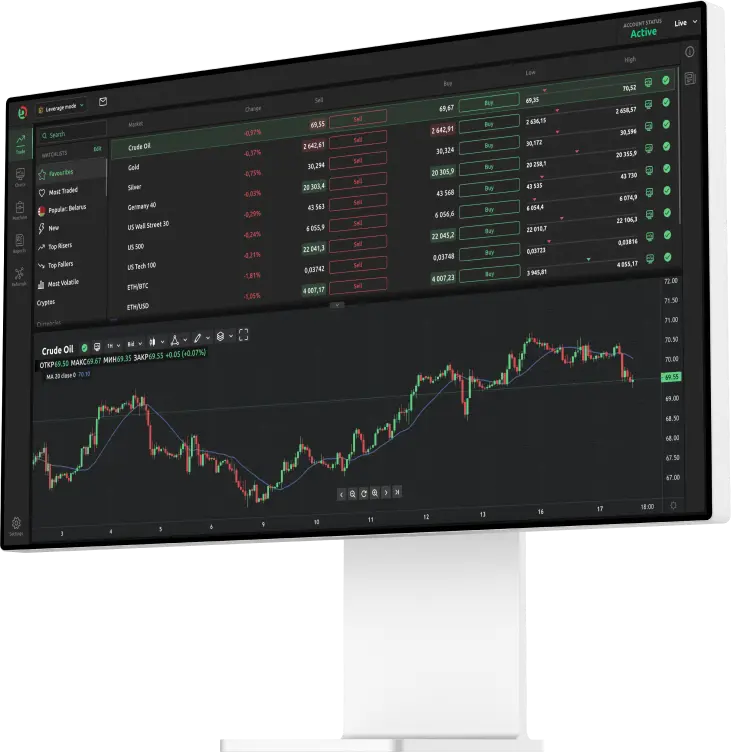Whatever you think of the groundbreaking cryptocurrency bitcoin, its volatility attracts traders. Here we explain how to trade bitcoin for beginners.

What is a bitcoin?
Bitcoin is a digital currency, with transactions stored on a public, digital ledger.
It’s known as a ‘cryptocurrency’ as it uses cryptography to secure its transactions, making bitcoin difficult to counterfeit.
Unlike central banking systems, cryptocurrency works on decentralised systems typically based on blockchain technology, which works as a distributed ledger to store information about all the crypto transactions. The blockchain is enforced by a network of computers all over the world and bitcoin is transferred via peer-to-peer (P2P) exchanges.
Origin of bitcoin
Bitcoin came into existence back in 2008, when a white paper titled ‘Bitcoin: A Peer-to-Peer Electronic Cash System’ was released by one Satoshi Nakamoto.
Three years later, Nakamoto sent bitcoin developer Mike Hearn a brief email that said “I’ve moved on to other things,” and that the future of bitcoin was in “good hands”. Nakamoto quietly disappeared. His or her identity is still a mystery.
Since its launch, bitcoin has been joined by more than 6,000 cryptocurrencies, known as altcoins, such as ether and litecoin. New ones are appearing all the time.
How to buy and sell bitcoin
The process of trading bitcoin is simple.
- First, exchange your cash, known as fiat money (pounds, dollars, euros, etc) for bitcoin using a crypto exchange company. The exchange creates a hot or cold wallet in which to store your coins;
- Hot wallets allow you to access your funds easily, but as they are always online, they’re vulnerable to attack and thus less secure;
- Cold wallets are always offline until you choose to access them. They don’t give easy access to the funds within them and are more difficult to attack;
- The bitcoin wallet you choose will depend on how often you want to access your funds. You can decide whether to keep your bitcoin there, or move them to another exchange;
- Both wallet types will give you two keys. The first key is the public key, a code you give to the exchange when you want to withdraw funds. This is the one you share with other people. The second, private key acts as your signature and is kept private to prevent others accessing your funds.
Bitcoin value
Once you know how to buy and sell bitcoin, you may wonder, is it worth the trouble? The cryptocurrency has undoubtedly prompted some alarming headlines.
But if you had bought $100 (£65) worth of bitcoin back on 1 January 2011, you would have paid 30 cents a coin. You would have had to endure a bumpy journey as the price has had a rollercoaster ride. At the time of writing, each of those bitcoins was valued at $57,566, making your humble $100 now worth $19.17m (excluding fees).
If you fancy trading bitcoin, check out the tips in this guide.
Bitcoin trading tips
- Research and learn
Before anything, make sure you do your research. Find out what the fees are for the exchange you’re interested in, how it keeps your information safe (look for two-factor authentication) and ensure it has a good reputation;
- Make a trading plan
As Benjamin Franklin supposedly said, “If you fail to plan, you are planning to fail”.
Make a trading plan before you start, listing your goals, how often and how long you want to trade and how much money you’re happy to risk. That should help you to avoid falling foul of your emotions when trading;
- Trade bitcoin using leverage
An alternative way to trade bitcoin is using leverage.
For example: In a traditional exchange, you would pay the full amount of your trade (eg, buying 10 bitcoins for $10,000 would cost you $100,000). In a 1:100 leverage trade, however, you would pay just one per cent of that $100,000; just $1,000. In both cases, should the price of bitcoin rise by 5%, you would make the same $5,000 profit. Trading with leverage thus means you can make the same profit, but at a considerably reduced cost;
- Security
Opening a separate email account for bitcoin trading purposes (ideally with two-factor authentication) means that if hackers break in, the damage they can cause is limited (particularly if that email address contains no personal information). Mobile phones are also easily compromised, physically and electronically, so are best avoided for trading;
- Bitcoin mining
When bitcoin started to surge in popularity, many people became ‘miners’, offering their home computers to join the network to crack the cryptographic codes for the ledger. Miners were rewarded with new bitcoins and often made a tidy profit doing so.
Unfortunately, times have changed and while technically, anyone can still mine, the chances are your electricity bill would far outweigh any profit. Since 2018, the only way really to make money from bitcoin mining is within specialist data centres; huge warehouses with machines that are solely used to mine bitcoin.
- Fasten your seatbelt
Bitcoin’s volatility both attracts and terrifies potential traders, so be prepared for a bumpy ride. But providing you have planned your strategy and made sure you have diversified your holdings, bitcoin trading could reap some exciting rewards.

